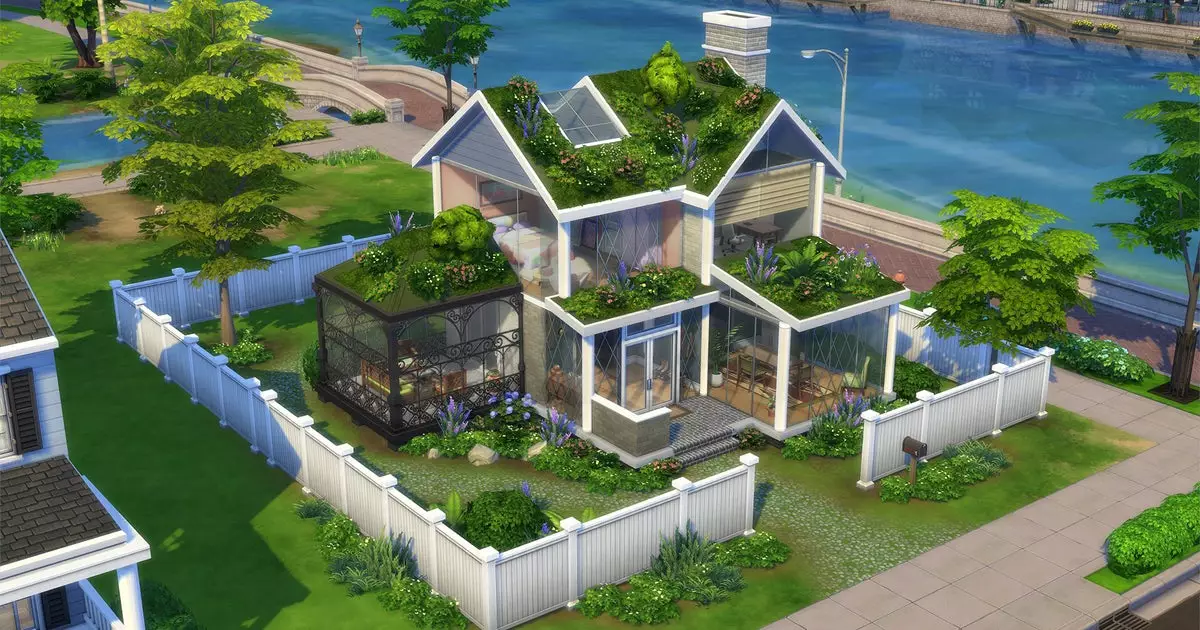The Sims 4, a game renowned for its sandbox freedom and creative potential, has recently introduced features that seem to undermine its foundational principles. While developer updates often aim to enhance gameplay, this latest iteration appears to prioritize superficial aesthetics over responsible design. Instead of fostering immersive and respectful simulation experiences, EA and Maxis have taken steps that could encourage invasive, voyeuristic, and even cruel gameplay elements. Such choices reveal a troubling disregard for the emotional and ethical impacts on players and virtual characters alike.
Glass Walls: From Practical to Perilous
The introduction of glass walls ostensibly offers players new options for aesthetics — a seemingly innocuous addition. However, the implementation reveals a darker side. Glass walls, initially touted for constructs like greenhouses, quickly become tools for creating transparent prisons. Players are now able to build fully see-through enclosures that resemble cages, effectively transforming the open-ended creativity into opportunities for sim cruelty. Reddit examples of players designing glass cells or cages expose a disturbing trend: the game inadvertently encourages dehumanizing treatment of virtual characters.
This shift from functional design to potential abuse signals a troubling lapse in ethical boundaries. The game’s architecture now makes it effortless not just to craft visually stunning structures but also to exploit their transparency for malicious delights. This begs the question — are developers intentionally or negligently enabling a form of virtual mistreatment? If so, it reflects poorly on the developers’ understanding of the social and moral responsibility that comes with manipulating a simulation of human experiences.
Roof Gardens and Accessibility Challenges
Another questionable addition is the ability to attach plants to rooftops. While plant decoration may seem benign, placing flora atop structures complicates realistic and functional gameplay. Watering rooftop gardens involves climbing ladders or ladders, introducing an element of inconvenience that feels unnecessary, especially when it is framed as a feature rather than a design challenge. This choice appears driven more by novelty than utility, overshadowing practical gameplay considerations with gimmicks that may frustrate players or diminish the sense of realism.
Moreover, such features suffer from a lack of contextual integration. If the goal is aesthetic diversity, developers could have prioritized more meaningful content that enhances storytelling rather than superficial eye-candy. The focus on ornamental plants on rooftops exemplifies a misplaced fixation on visual novelty over substantive gameplay depth.
Inventory Changes and User Interface: Overreach or Overlooked?
The new specialized inventory section for spoiled food, coupled with UI enhancements, has the potential to streamline gameplay. While on the surface these sound like quality-of-life improvements, they risk trivializing core gameplay mechanics and the emotional weight of managing resources. The ability to easily discard or ignore spoiled food may inadvertently promote neglect or irresponsibility within players’ virtual households. Such features, if misused, could foster a more callous gameplay attitude, especially if players are encouraged to prioritize efficiency over empathy.
Furthermore, the menu updates may not enough compensate for the underlying design flaws. Instead of inspiring players to consider their Sims’ well-being, these modifications seem to staticize and sanitize gameplay, making the simulation feel less alive and more mechanical. Depth and complexity are sacrificed where convenience is prioritized, impeding meaningful engagement.
Underlying Ethical Concerns and Future Implications
Most critically, these updates expose a deeper issue within The Sims 4’s development ethos: a tendency to enhance visual diversity at the expense of ethical mindfulness. The ability to craft transparent prisons and impose unnecessary hurdles with rooftops can encourage a dismissive attitude toward the wellbeing of virtual characters. This reflects poorly on the developers’ conception of a respectful and nuanced simulation.
If such features become widespread, they could influence players’ perceptions of virtual ethics, potentially blurring the lines between innocent creativity and moral irresponsibility. The game’s community might evolve into a space where cruelty is normalized and empathy is diminished, especially when the tools to mistreat are built into the very fabric of the game.
The latest updates of The Sims 4 reveal a concerning trend: superficial additions and questionable design choices that optimize visual appeal at the cost of ethical integrity. As players, we must demand more thoughtful innovation from developers who shape these virtual worlds. Otherwise, what should be a reflection of human creativity risks becoming a playground for irresponsibility and insensitivity.

